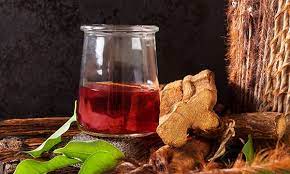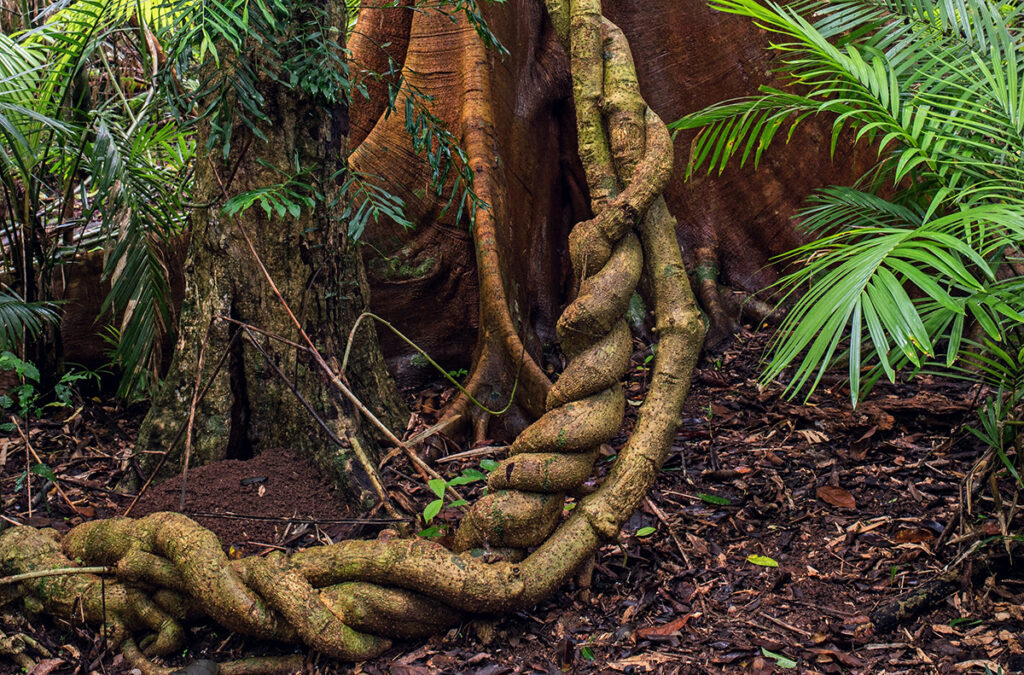Uncategorized
The Mystical Journey of Ayahuasca: Unveiling the Sacred Brew
Introduction
In the dense, mysterious heart of the Amazon rainforest, a sacred brew has been concocted for centuries, serving as a gateway to profound spiritual experiences. This brew, known as Ayahuasca, has captivated the curiosity of many around the world. With its potential for deep healing and transformative journeys, Ayahuasca has become a topic of intrigue and discussion. This blog delves into the essence of Ayahuasca, its preparation, potential risks, and the rising popularity on platforms like Reddit, addressing concerns such as whether Ayahuasca can induce schizophrenia.
What is Ayahuasca?
Ayahuasca, often referred to as “the vine of the soul,” is a powerful psychoactive brew made from the Banisteriopsis caapi vine and the Psychotria viridis shrub. Indigenous tribes in the Amazon basin have used it for centuries as a sacrament in religious and healing ceremonies. The brew’s effects are attributed to its active components: the alkaloids DMT (dimethyltryptamine) from Psychotria viridis and MAO inhibitors (monoamine oxidase inhibitors) from Banisteriopsis caapi.

DMT is a potent psychedelic compound that, when ingested alone, is rapidly broken down by the body’s MAO enzymes. However, the MAO inhibitors in Ayahuasca prevent this breakdown, allowing the DMT to enter the bloodstream and cross the blood-brain barrier, resulting in a powerful, prolonged psychedelic experience.
The Ayahuasca Ceremony
Participating in an Ayahuasca ceremony is often a deeply transformative experience, guided by a shaman or experienced facilitator. The ceremony usually takes place in a secluded, natural setting, often in the Amazon rainforest or specialized retreat centers around the world.
- Preparation: The preparation for an Ayahuasca ceremony often begins days or weeks in advance. Participants are usually advised to follow a specific diet, abstaining from certain foods and substances, to cleanse the body and mind. This preparation is believed to enhance the effects of the brew and minimize potential adverse reactions.
- The Ceremony: During the ceremony, participants consume the Ayahuasca brew, often in multiple doses throughout the night. The shaman guides the experience, using chants, music, and rituals to facilitate the journey. The effects typically begin within 30 to 60 minutes and can last for 4 to 6 hours. Participants may experience vivid visions, emotional releases, and profound insights.
- Integration: After the ceremony, integration is a crucial process. Participants are encouraged to reflect on their experiences, often with the support of the shaman or a therapist. Integration helps to process the insights gained and incorporate them into daily life.
Iowaska: A Common Misspelling
The term “Iowaska” is a common misspelling of Ayahuasca. Despite the incorrect spelling, the context and references usually point to the same psychoactive brew. It’s important to note this variation to avoid confusion, especially when conducting research or seeking information online.
Can You Get Schizophrenia from Ayahuasca? Reddit Discussions
The potential link between Ayahuasca and mental health conditions, particularly schizophrenia, is a topic of concern and debate. On platforms like Reddit, users often share their experiences and seek advice on this matter. Here, we will explore this question based on scientific evidence and anecdotal reports.
- Scientific Perspective: Current scientific research does not provide conclusive evidence that Ayahuasca can cause schizophrenia. Schizophrenia is a complex mental health disorder with multiple contributing factors, including genetics, environment, and brain chemistry. While Ayahuasca can induce intense psychological experiences, it is not known to directly cause schizophrenia.
- Anecdotal Reports: On Reddit, some users have reported experiencing psychotic symptoms after using Ayahuasca. These accounts, while valuable, should be interpreted with caution. Individuals with a predisposition to mental health disorders may be more vulnerable to experiencing adverse effects. It’s crucial for anyone with a personal or family history of schizophrenia or other severe mental health conditions to consult with a healthcare professional before considering Ayahuasca.
- Professional Advice: Mental health experts often advise against the use of powerful psychedelics like Ayahuasca for individuals with a history of psychosis or severe mental health conditions. The intense nature of the experience can exacerbate underlying issues. A thorough mental health assessment and professional guidance are essential before participating in an Ayahuasca ceremony.
Ayahuasca Tea: Preparation and Components
The preparation of Ayahuasca tea is a meticulous process that involves brewing the Banisteriopsis caapi vine and Psychotria viridis leaves together. Here is an overview of the preparation process and the components involved:
- Ingredients: The two primary ingredients are the Banisteriopsis caapi vine, which contains MAO inhibitors, and the Psychotria viridis leaves, which contain DMT. The combination of these ingredients is crucial to achieving the psychoactive effects of Ayahuasca.
- Preparation: The preparation process can take several hours. The vine is usually pounded and shredded to increase the surface area, allowing for better extraction of the alkaloids. The leaves and vine are then boiled together for several hours, sometimes in multiple stages, to create a potent brew.
- Cultural Significance: The preparation of Ayahuasca is often accompanied by rituals and prayers, reflecting the deep spiritual significance of the brew. The process is seen as a form of communion with the plant spirits and the divine, highlighting the sacred nature of Ayahuasca in indigenous cultures.

The Rise of Ayahuasca Tourism
In recent years, Ayahuasca has gained popularity beyond the Amazon basin, leading to a rise in Ayahuasca tourism. People from all over the world travel to South America to participate in Ayahuasca ceremonies, seeking healing, spiritual growth, and profound experiences.
- Retreat Centers: Numerous retreat centers have emerged, offering Ayahuasca ceremonies in a controlled and guided environment. These centers often provide a range of services, including medical supervision, therapeutic support, and integration programs.
- Ethical Considerations: The commercialization of Ayahuasca has raised ethical concerns. The traditional knowledge and practices of indigenous communities are sometimes exploited for profit, with little benefit to the original custodians of the practice. It’s important for participants to choose retreat centers that work ethically and sustainably, respecting the cultural heritage of Ayahuasca.
- Safety and Regulation: Ayahuasca tourism also raises questions about safety and regulation. Not all retreat centers operate with the same standards, and there have been reports of unsafe practices and exploitation. It’s crucial for potential participants to thoroughly research and choose reputable centers with experienced facilitators and proper safety protocols.
The Healing Potential of Ayahuasca
Ayahuasca is often revered for its potential healing properties, both psychological and physical. Research and anecdotal reports suggest several benefits:
- Psychological Healing: Many participants report profound psychological healing from Ayahuasca, including relief from depression, anxiety, PTSD, and addiction. The intense emotional and psychological experiences can lead to deep insights and emotional releases, facilitating healing.
- Spiritual Growth: Ayahuasca is often described as a tool for spiritual growth and awakening. Participants may experience a sense of connection to the divine, the universe, and their true selves. This spiritual dimension is a significant aspect of the Ayahuasca experience.
- Physical Healing: Some reports suggest that Ayahuasca may have physical healing properties, potentially benefiting conditions such as chronic pain and autoimmune disorders. However, more scientific research is needed to substantiate these claims.
Risks and Precautions
Despite its potential benefits, Ayahuasca is not without risks. It’s essential to be aware of these risks and take appropriate precautions:
- Psychological Risks: The intense nature of the Ayahuasca experience can be psychologically challenging. Some individuals may experience fear, anxiety, and distress during the ceremony. Proper preparation and support are crucial to navigate these challenges.
- Medical Risks: Ayahuasca can interact with certain medications and medical conditions. It’s important for participants to disclose their full medical history and consult with a healthcare professional before participating in a ceremony.
- Legal Risks: The legal status of Ayahuasca varies by country. In some places, it is classified as a controlled substance, while in others, it is permitted for religious or therapeutic use. Participants should be aware of the legal implications in their respective countries.
Conclusion
Ayahuasca is a powerful and sacred brew that offers profound experiences and potential healing. Its rich history and cultural significance, coupled with its growing popularity, make it a fascinating subject of study and exploration. However, it’s crucial to approach Ayahuasca with respect, awareness, and caution, considering both its potential benefits and risks. For those drawn to its mystical allure, a well-informed and respectful approach can lead to a transformative journey of self-discovery and healing.
By understanding the essence of Ayahuasca, addressing concerns such as its potential link to schizophrenia, and appreciating its cultural and spiritual significance, we can navigate the complexities of this ancient brew with reverence and wisdom. Whether seeking healing, spiritual growth, or profound experiences, Ayahuasca offers a unique and powerful path for those who approach it with an open heart and mind.

